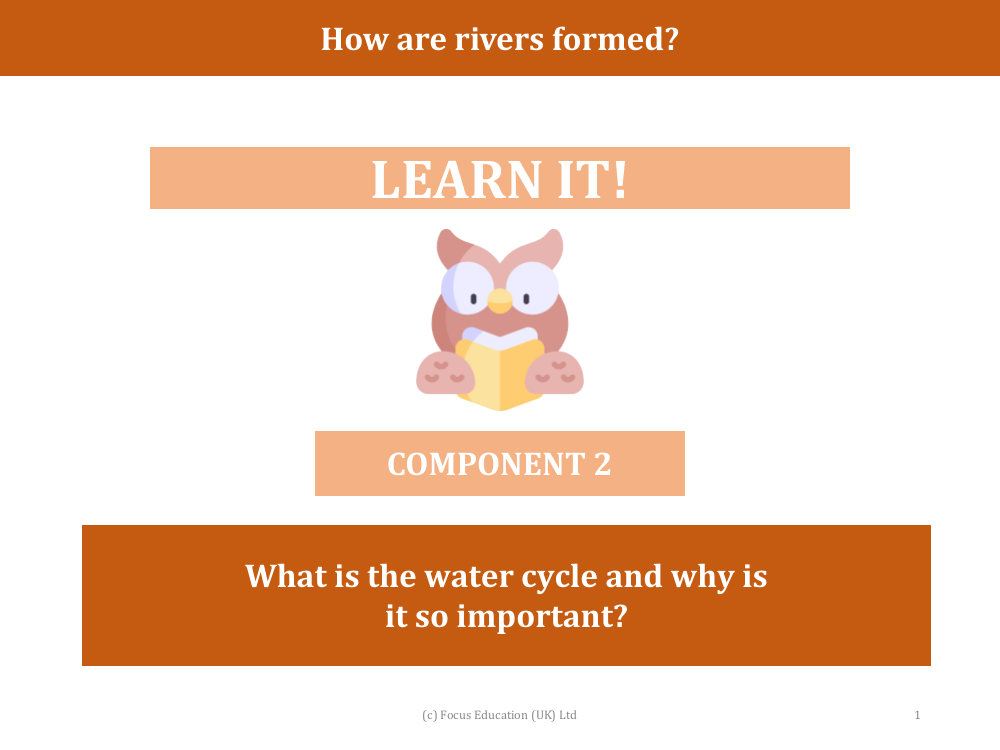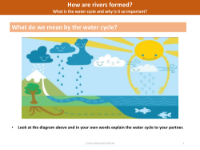What is a water cycle and why is it so important? - Presentation

Geography Resource Description
The water cycle is a fundamental ecological process that recycles the Earth's water supply and supports life. This cycle involves the constant movement of water between the atmosphere, land, and bodies of water through the stages of evaporation, condensation, and precipitation. During evaporation, water from rivers, lakes, oceans, as well as moisture from plants, is heated by the sun and turns into vapour. This vapour rises into the atmosphere and, as it cools, forms clouds in a process called condensation. These clouds eventually release the water back to the Earth in various forms such as rain or snow, known as precipitation.
The water cycle is crucial because it ensures the distribution of water across the planet, affecting weather patterns and climate. It also plays a vital role in maintaining the natural habitats for plants and animals. After precipitation, water collects in various forms, contributing to rivers, lakes, and oceans. Some of it becomes groundwater, which can feed into water bodies over time, while some may be stored as ice in glaciers or polar ice caps. This continuous cycle not only balances the Earth's water resources but also enables humans and all terrestrial life forms to have access to fresh water, making it indispensable for survival.




